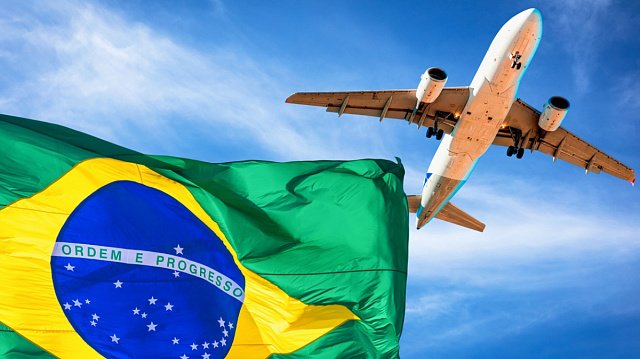
Brazil has presented the fifth edition of its National Action Plan for the Reduction of CO₂ Emissions in Civil Aviation, reaffirming its commitment to decarbonisation and sustainable growth in the sector. This is
reported by Brazil’s Ministry of Ports and Airports.
The plan outlines a combination of sustainable fuel targets, operational improvements and technological innovation to reduce the sector’s environmental footprint while meeting growing demand.
According to government projections, while total greenhouse gas emissions from aviation are expected to rise by 2035 due to sector expansion, the Emission Intensity Index is set to decline, signalling efficiency gains and a lower carbon footprint per passenger and cargo unit transported.
One of the key updates in this edition is the integration of the Future Fuel Law (Law 14.993/24), which introduces the mandatory use of sustainable aviation fuel (SAF) in Brazil. From 2027, domestic operations must include at least 1 per cent SAF, with the share set to rise to a minimum of 10 per cent by 2037.
Brazil’s aviation sector has already demonstrated efficiency gains over the past two decades. Between 2003 and 2023, domestic fuel consumption grew by an average of 2.4 per cent per year, while Revenue Tonne-Kilometres (RTK), a measure of passenger and cargo traffic, increased at a faster rate of 4.35 per cent annually. This reflects steady improvements in fuel efficiency per unit transported.
The new edition consolidates more than a decade of efforts, aligning national strategies with international climate commitments and paving the way for long-term sustainability in Brazilian aviation, the source claims.
Photo: Wirestock /
iStock
Самые
актуальные новости стран БРИКС https://tvbrics.com

